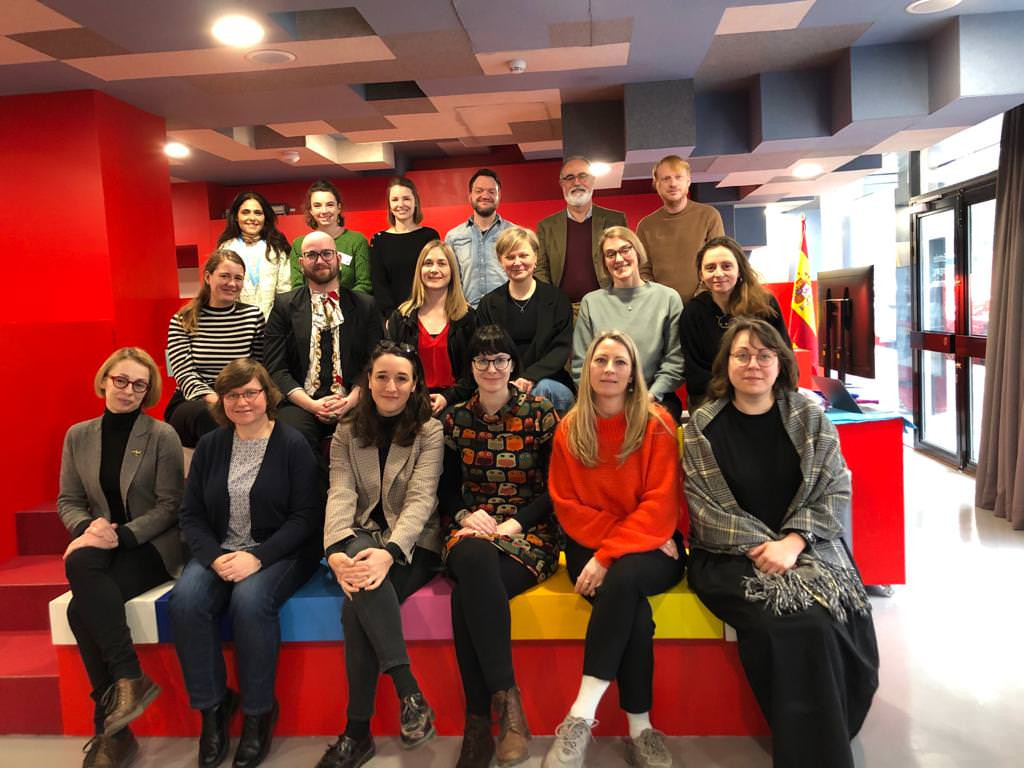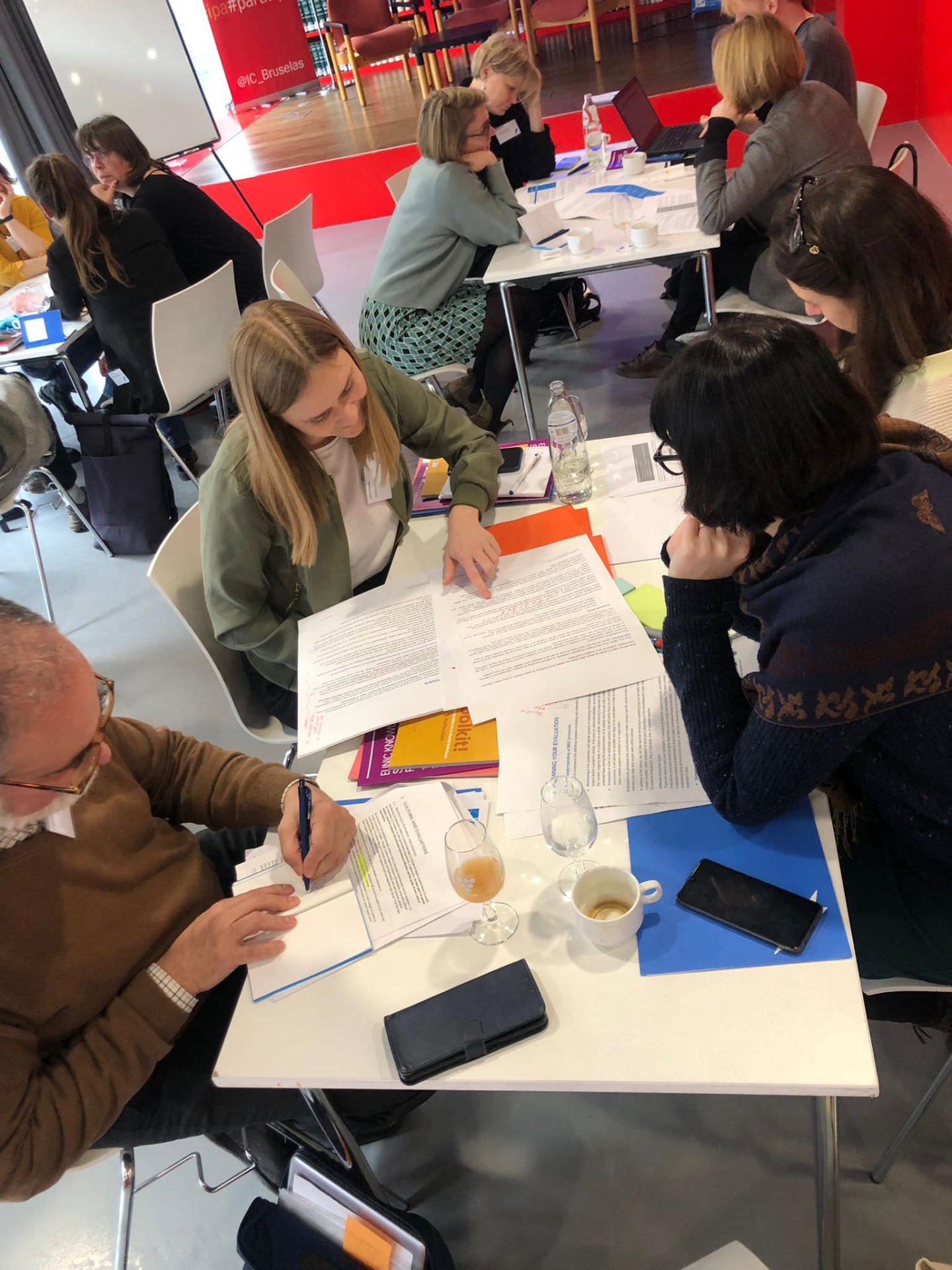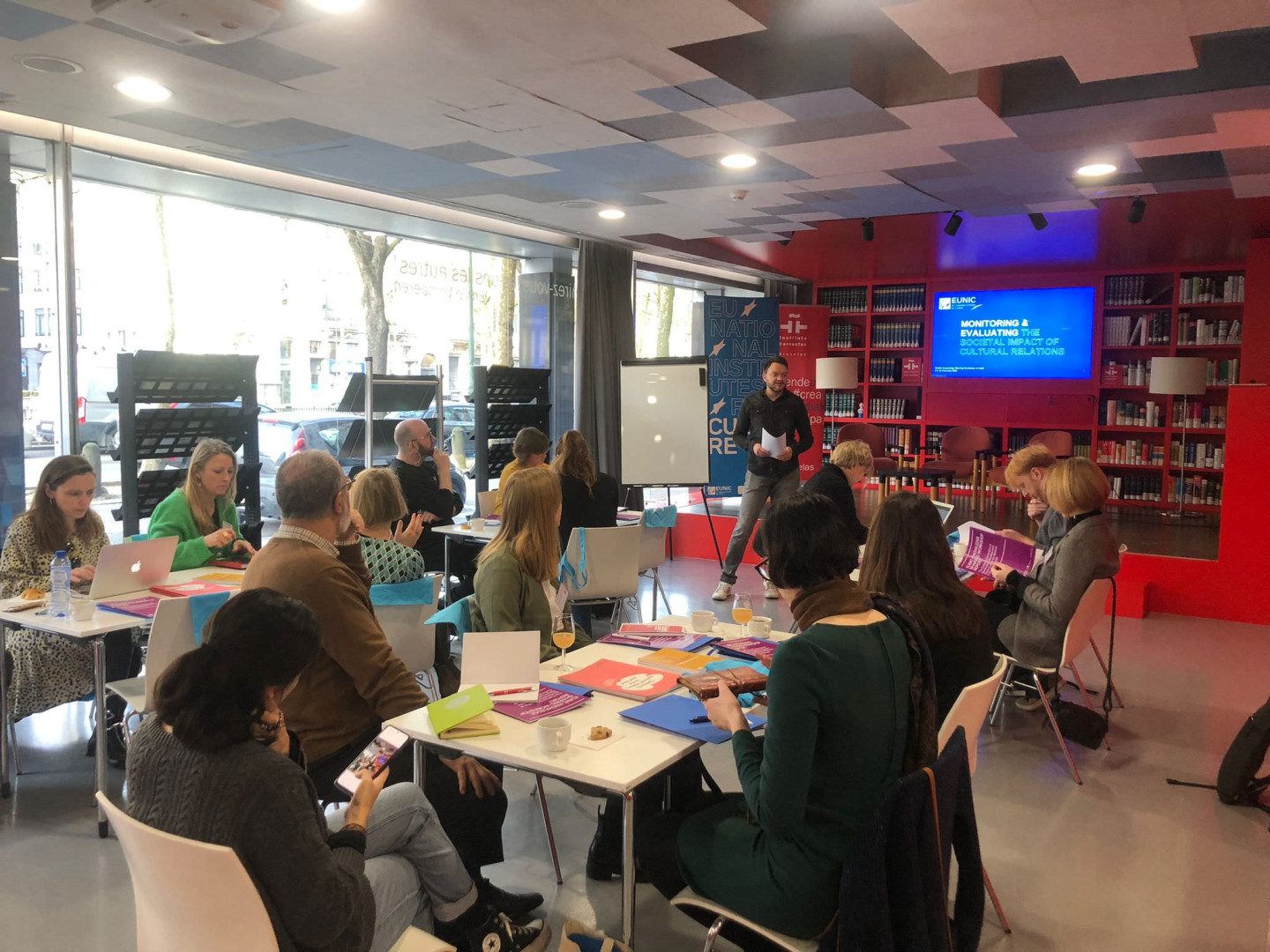


Monitoring & Evaluating the Societal Impact of Cultural Relations
What parameters currently inform the way EUNIC members use monitoring and evaluation for their programmes and projects? Are current practices undertaken in a fair way, and what does fair M&E look like? How can the UN's wider SDG framework and the UN 2030 Indicators for Culture complement and inform existing M&E practices of EUNIC members? How are the UN’s SDGs currently included in the processes, and how could both approaches benefit from each other?



To discuss these and other questions, M&E experts from various EUNIC members met for two days in Brussels on 9 and 10 February 2023. Hosted by Instituto Cervantes Brussels, this EUNIC Knowledge Sharing Workshop 'Monitoring and Evaluating the Societal Impact of Cultural Relations' built on two previous workshops around the topic of M&E, namely 2019 in Prague and 2020 in Brussels.
While the programme continued to focus on sharing experiences and practices between the colleagues from EUNIC members' headquarters and branches actively working on M&E in their organisation, a special emphasis was put on the need to develop fair tools of M&E, and on the role of M&E to capture the societal impact of cultural relations. In line with EUNIC's longer term commitment to the UN's Sustainable Development Goals, the UN 2030 Indicators for Culture were introduced by Jyoti Hosagrahar, Deputy Director World Heritage Centre, UNESCO, to set the backdrop of the workshop.
Ethical questions around fair collaboration are another area of crucial importance to the EUNIC network. Avril Joffe and Sudebi Thakurata, two of the authors of Not a toolkit! Fair collaboration in cultural relations: a reflAction were invited to share some thoughts specifically on practices of fair evaluation. Together with the participants, it was discussed how fairness can be deeper embedded in evaluation, what dilemmas can be encountered in evaluations, which values can be of importance in addressing these dilemmas, and how theories of change can be made in a fair way.
EUNIC members show a diversity of experiences, capacities and goals for M&E but what we share is the aim to make visible how culture can change and impact societies.
Henriette Borg Reinholdt, Danish Cultural Institute, about the importance of measuring and communicating impact
In 2020, a M&E toolkit specifically for projects supported under the European Spaces of Culture Preparatory Action was created by experts of the EUNIC network. With the goal of revising this existing toolkit by adding recent developments in members' practices as well as notions of sustainable development and fair practices, participants dedicated parts of the workshop to reading the existing resources in detail and developing new suggestions. Thoughs and exchanges on how to updated the toolkit and to transform it into useful tools for the entire network were enriched by presentations of colleagues from Sri Lanka, Shanghai, Ethiopia, and Colombia who shared their project experiences with regards to M&E. Substanial feedback on the existing tools was gathered which will be crucial in improving and developing the toolkit further.
Finally, participants decided that it would be useful to stay involved as a community of practice in order to function as sounding board for the process of updating the M&E toolkit, but also to raise M&E topics within the network and to maintain close exchanges to facilitate knowledge exchanges among the expert group and organisations.
To learn more about the workshop programme and outcomes of discussions, read the full report here.
